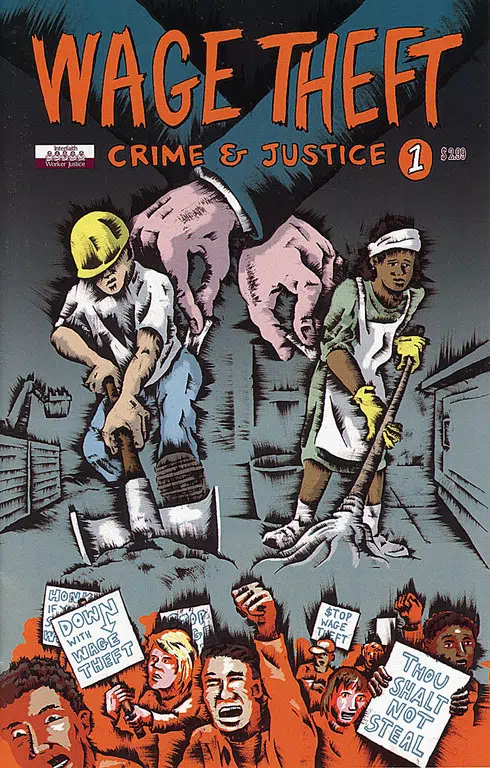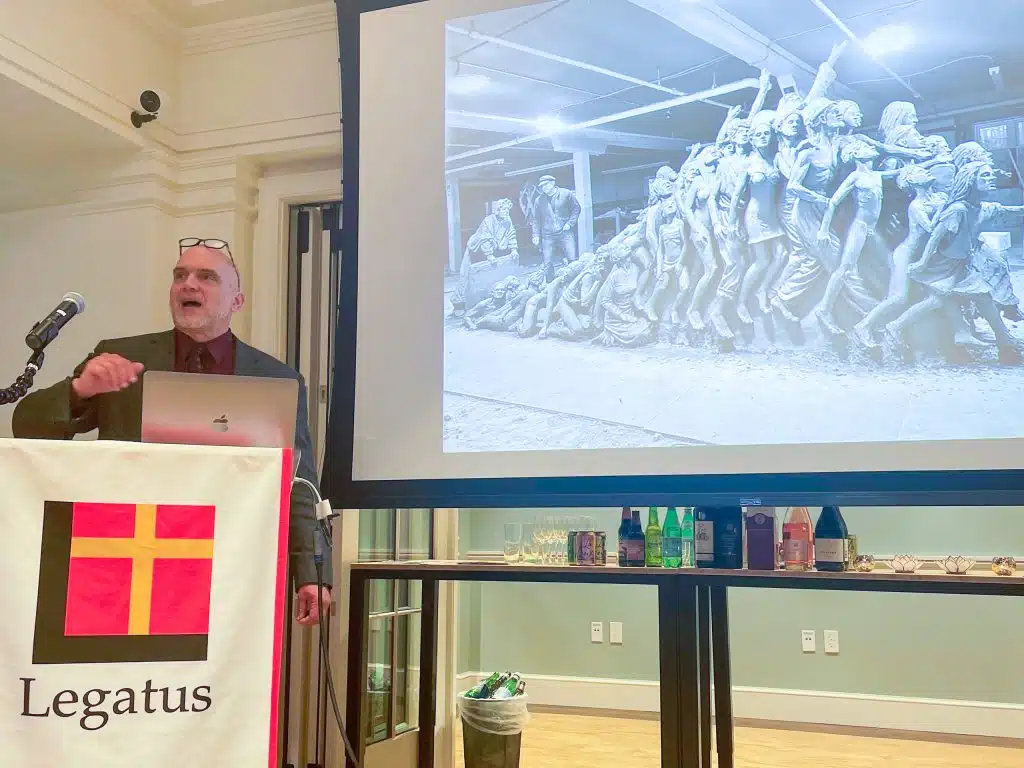WASHINGTON – Worker advocates have turned to a new tool to educate low-wage employees about wage theft.
Welcome the comic book.
The first issue of Wage Theft: Crime & Justice, published by Chicago-based Interfaith Worker Justice, may not be coveted by comic book collectors, but clients at worker centers around the country are poring over the bilingual book to learn how best to regain wages owed to them by deceitful employers.
“The combination of story and art can be very powerful,” said Jeffry Korgen, executive director of planning and communications for the Diocese of Metuchen, N.J., who wrote the book and teamed with artist Kevin C. Pyle in the effort.
A longtime worker rights advocate, Korgen said he was inspired to develop a short graphic novel in English and Spanish to tell the stories of workers who were cheated out of wages owed to them under state and federal laws.
“Poverty is awful and something we should try to alleviate,” Korgen said. “Jesus told us it is essential toward our salvation. But when you look at people working full time, maybe several jobs, and they still can’t feed their children or provide health care, and on top of that employers are stealing their wages, that just cries for action.”
The 32-page book tells the stories of four real-life workers who failed to be paid for overtime hours or extra hours off the clock, whose pay was below the minimum wage (currently $7.25 an hour) or who waited weeks for a paycheck. The stories end with examples of how the workers took steps to recover their wages by learning about their legal rights, coming together with co-workers to act and educating the public about their situation.
The stories come from among clients at some of the 27 worker centers affiliated with Interfaith Worker Justice. Some of the centers, as well as the Chicago justice organization, have received Catholic Campaign for Human Development grants for their worker advocacy efforts. CCHD also provided a $5,000 education grant for the book project. In addition, the CCHD program in the Archdiocese of Galveston-Houston supported the project.
“It’s a great way for people to understand the issues of wage theft who may not be aware of it at all,” Kathy Saile, director of domestic social development at the U.S. Conference of Catholic Bishops and an Interfaith Worker Justice board member, said of the comic book. “It’s also a way to help to help victims learn about wage theft. Maybe they don’t realize wages are being stolen … and there are ways to fix it.”
Wage theft is most prevalent in low-paying employment sectors, among them construction, restaurant, domestic and hotel services, nursing homes and home health care. “Broken Laws, Unprotected Workers,” a 2008 study involving 4,387 low-wage workers in New York, Chicago and Los Angeles found numerous workplace violations involving both wages and working conditions.
Some of the findings include:
– 25.9 percent of workers were paid below minimum wage.
– 19.1 percent worked overtime and 76.3 percent of them were not paid overtime wages
– 16.9 percent worked off the clock and 70.1 percent were not paid for that work.
– 58.3 percent experienced meal break violations.
– 12 percent of tipped workers had tips stolen by an employer or supervisor.
– 4.6 percent of workers experienced retaliation from an employer for making a complaint or organizing a union.
“Organizationally, we have tried to promote the concept that this is not a just a minor problem, that this is a widespread, systematic abuse of workers across the country,” Kim Bobo, Interfaith Worker Justice’s executive director, told Catholic News Service.
Enforcement actions by the Department of Labor tend to support Bobo’s statement. In fiscal year 2012, the department’s Wage and Hour Division secured employer agreements to pay more than $280 million in back wages while assisting more than 308,000 workers. Spokesman Jason Surbey said it’s the largest amount recovered in the division’s history. That compares with $172 million recovered and 219,759 workers helped in fiscal year 2009.
Bobo said several factors contribute to wage theft, including lessening sense of responsibility to workers on the part of business owners, the falling number of unionized jobs and the subsequent loss of union oversight of employer actions and a backlog in enforcement of labor laws by the Department of Labor.
On top of that, many low-wage jobs are largely filled by immigrants, many of whom are in the country illegally and face threats of deportation by employers if they complain about working conditions or lost wages, she said.
Laura Perez-Boston, executive director of Fe y Justicia Worker Center in Houston, described wage theft as “rampant workplace abuse.”
The center runs twice-a-month workshops for workers who have experienced wage theft. Each session has at least 40 workers who learn about the complex steps necessary to recover unpaid wages. Perez-Boston said the center has 140 active cases and another 64 in process. All of the cases are handled by one full-time staffer and a crew of volunteers.
“The point for us is the workers are helping to educate these employers,” she explained. “It’s not just about me (the worker). It’s not about money. It’s about ‘My work has dignity. You don’t have the right to treat me like this.'”
Editor’s Note: In addition to the print version, Wage Theft: Crime & Justice is available online in English (bit.ly/ZKYlMj) and Spanish (bit.ly/13FRTdc). Information about wage theft is available through Interfaith Worker Justice at iwj.org/issues/wage-theft. “Broken Laws, Unprotected Workers” can be found online at bit.ly/1QR4FV.



